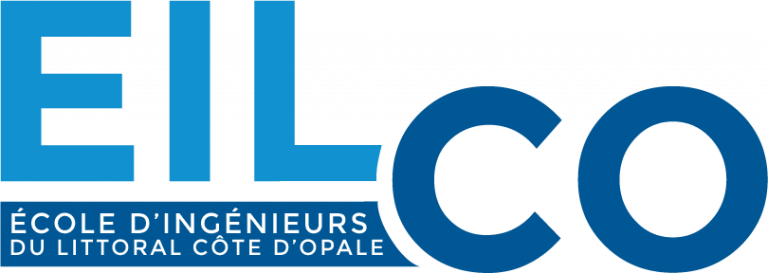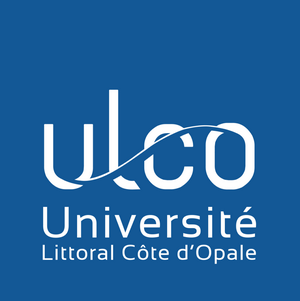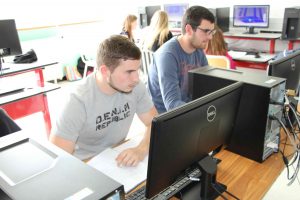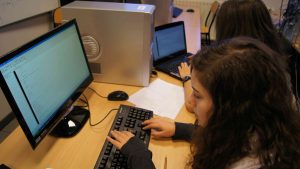The EIL Côte d’Opale trains general computer engineers at the Calais site. The objective of the “Computer Science” speciality is to train engineers with skills in the development, deployment and audit of IT systems in environments combining distribution and mobility. Engineers are trained in both purely software aspects and those involving hardware components, mainly electronic. Areas of study include general-purpose information processing systems and those related to industrial computing and embedded systems.
The EIL Côte d’Opale engineer is also trained to carry out research, innovation and entrepreneurship projects in a context of sustainable development.
The curriculum of the Engineering Cycle is broken down into Teaching Units (UE) according to the following typology:
Basic Sciences
Engineering Sciences and Techniques
Specialty Sciences
Humanities, Economics, Legal and Social Sciences
International Openness
Internship
The engineering cycle of the Computer Science speciality is open to students from preparatory classes for the grandes écoles in the MP, MPI, PC, PSI, PT, TSI and ATS courses or from the integrated preparatory cycle of the EIL Côte d’Opale.
Upon internal competition and within the limit of available places, students at the Master 1, Licence 2, Licence 3 level as well as students holding a BUT or a BTS can also join this specialty.
The initial training of students in the engineering cycle takes place over 3 years. It is organised according to the principle of semesterisation and is therefore broken down into 6 semesters (S5 to S10).
The courses are defined through teaching modules that may include Lectures (CM), Tutorials (TD) and Practical Work (TP).
During the first two years of the Computer Science engineering cycle, engineering students follow a common core, including UEs such as Basic Sciences, Engineering Sciences and Techniques, Specialty Sciences, Humanities, Economics, Legal and Social Sciences, International Opening, Internship.
In the final year, engineering students also follow a common core and, depending on their professional project, engineering students choose one of the following three courses:
Data Science or,
Autonomous Vehicles or,
Artificial intelligence.
Students can also follow a course they have chosen as part of a one-semester international mobility or to obtain a double degree.
Finally, the engineering student in his final year has the opportunity to strengthen his professional experience and to be paid within the framework of professionalization contracts offered by many companies. These students then follow an alternation of 3 days in school (Monday, Tuesday, Wednesday) and 2 days in the company (Thursday and Friday) during the first semester.
The training is punctuated by numerous projects spread over the three years.
In the first year:
A 30-hour computer science study project in the S5 semester,
A 30-hour solidarity project in the S5 and S6 semesters,
In the second year:
An associative life project started during S5 and S6 and finalized in S7 and S8
A 50-hour technical project in semesters S7 and S8,
In the third year:
An Innovation and Design Project (PIC) lasting 150 hours in semester S9.
The teaching of the computer science specialty totals 2060 hours, including 1770 hours of face-to-face teaching which includes exams and 290 hours of teaching per project.
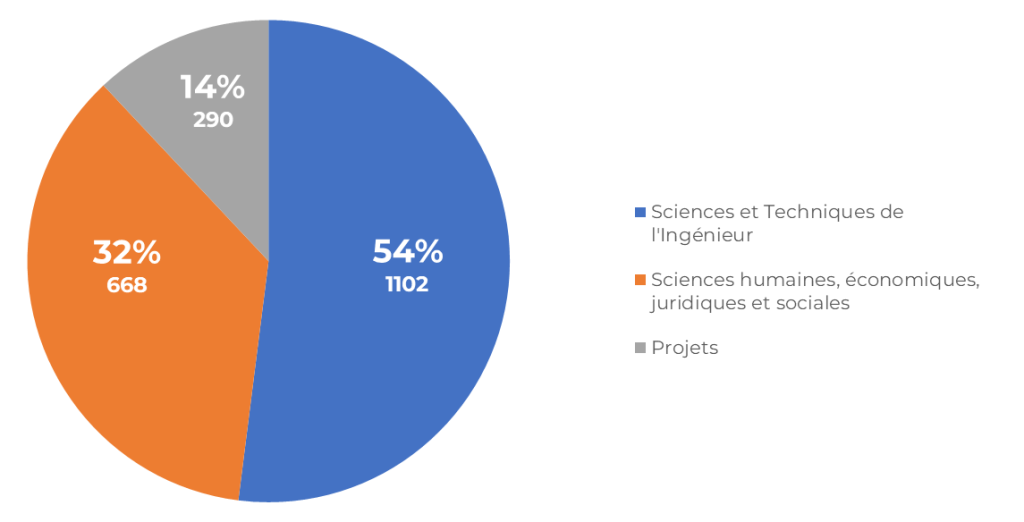
The practical training is supplemented by periods of internships in companies. The duration of the internships during the training period is a minimum of 9 months and represents a volume of 1360 hours. These internships place future engineers at the heart of the company’s realities:
At the end of the second year of the engineering cycle, they complete an internship as an Assistant Engineer (management of a technical project) for a minimum of 12 weeks in France or in a foreign country;
At the end of the last year, they carry out their 6-month end-of-studies project in a company in France or in a foreign country. Engineering students are placed in the same situation as an entry-level computer engineer. They can thus participate in a real project for the development, deployment, audit and/or evolution of an IT system in the industrial, service (trade, finance, etc.) or institutional fields, etc.
The field of Engineering Sciences and Techniques is based on disciplines such as algorithmics, databases, electronics, mathematical engineering, automation, signal processing, etc. Its purpose is to enable engineering students to acquire skills in the design, implementation and deployment of systems with a strong computer component and in the analysis and supervision of automatic systems, in particular by using mathematical engineering and signal processing tools.
The knowledge of the Humanities, Economics, Legal and Social Sciences courses constitutes a fundamental foundation for the acquisition of skills in corporate culture and entrepreneurship, management, the conduct and management of projects and teams, as well as knowledge of law, economics and business management, which are essential for any engineer. Some of these lessons are applied to issues related to logistics.
The purpose of the projects is to teach engineering students how to carry out a project from design to completion, including all the phases faced by the engineer in charge of carrying out a project in a company. They allow the learning of group work, the coordination of tasks, autonomy and the analysis of industrial problems whose complexity increases with the advancement in the engineering students’ curriculum. The minimum 10 months of internships, which are mandatory, allow future engineers to familiarize themselves with the structure and working methods in an industrial environment.
The aim of international openness is to prepare engineering students to work in an international context and to have a global and global vision of the issues they will have to deal with. This opening includes training in foreign languages, in particular English and a second modern language (German, Spanish, Chinese, etc.). The aim is to give future engineers the practices that will enable them to participate usefully in work meetings involving people of different nationalities. As English is the language of business, it has been made compulsory at EIL Côte d’Opale (200 hours over the entire course).
A certified level of English, attested by a recognized test external to the EIL Côte d’Opale (the TOEIC test), is required to validate the diploma. The desirable level for an engineer is level C1 of the “European Framework of Reference for Languages” of the Council of Europe. Under no circumstances will an engineering degree from EIL Côte d’Opale be awarded to an engineering student who does not reach the certified B2 level (i.e. 785 points for the TOEIC).
Finally, the school gives an important place to training in and through research. Thus, all students follow two modules with a direct link to the research carried out in the school’s partner laboratories. In addition, the projects carried out may be based on one of the issues developed by the partner laboratories. This opens the possibility for graduates of EIL Côte d’Opale to pursue, if they wish, doctoral thesis studies.
The engineering cycle study regulations and the syllabus of the computer science speciality detail the modalities and programmes of the three years of training.
Each module is subject to pre-defined evaluations and entitles you to ECTS (European Credit Transfer and Accumulation System) credits if validated.
The evaluation method of the EIL Côte d’Opale is continuous assessment in each subject.
Projects and internships are considered modules in their own right and are also evaluated based on a written report and an oral presentation that trigger the award of ECTS credits in case of validation.
The engineering cycle study regulations specify the terms and conditions for assessing the knowledge of the two years of training.
Engineers who graduated from EIL Côte d’Opale, specialising in Computer Science, work for companies in the following sectors:
Business services sector and particularly that of Digital Services Companies (ESN).
Industrial sector: production, manufacturing (electronics, mechanics, metallurgy, automotive, aeronautics, telecommunications, machinery and equipment, transport equipment, chemical and pharmaceutical industry, agri-food, textiles, etc.); technical services (maintenance, safety, control, quality, logistics).
Research and Development Sector, public and private research organizations, engineering and technical study companies, Universities.
Consulting and auditing, engineering and technical studies, service providers, specialized maintenance.
Sales, after-sales service, distribution.
Information and communication technology sector (image, sound, internet industry, etc.).
Health sector.
The professional works as an information systems design and development engineer, embedded systems engineer, industrial and technical computer engineer, information systems consultant-auditor, ERP consultant, project manager, information systems architect, information systems director, R&D engineer or business engineer.
Head of the 1st year of the Engineering cycle specialising in Computer ScienceRym GUIBADJ 03 21 17 10 18 (Campus de Calais) |
Head of the 2nd year of the Engineering cycle specialising in Computer ScienceArnaud LIEFOOGHE 03 21 46 36 43 (Campus de Calais) |
Responsible for the 3rd year of the Engineering cycle specialising in Computer ScienceGérard LEROY 03 21 46 57 82 (Campus de Calais) |
SecretariatChloé CADET |
